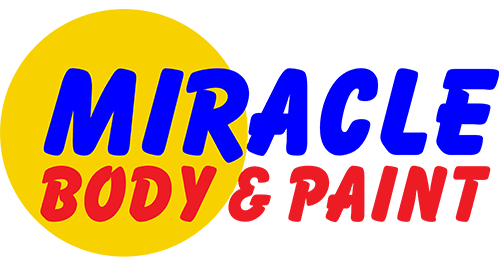
Specialized Collision Repair for Hybrid Vehicles

Real Customer Stories: How We Helped with Their Collision Repair Needs
After a car accident, negotiating with your insurance company can be a crucial step in recovering fair compensation for your injuries and damages. In this article, we’ll provide expert tips and strategies to help you navigate the claims process, prepare for negotiations, understand the role of fault in settlements, and value your vehicle repairs. We’ll also cover proven negotiation tactics to ensure you receive the maximum compensation you deserve.
Key Takeaways
- Understand the claims process and how insurance companies calculate compensation
- Prepare thoroughly for negotiations by gathering documentation and evidence
- Be aware of the role of fault in settlements and familiarize yourself with state negligence laws
- Learn how to accurately value your vehicle repairs and associated costs
- Utilize proven negotiation strategies to maximize your claim settlement
Understanding the Claims Process
Navigating the insurance claims process can be daunting, but it’s a crucial step in securing the compensation you deserve after an accident. The key is to approach the process with a clear understanding of how insurance companies calculate compensation and the role of the insurance adjuster.
How Insurance Companies Calculate Compensation
When determining the value of your claim, insurance companies will consider various factors, including your medical expenses, lost wages, permanent disabilities, pain and suffering, and property damage. To ensure you receive a fair settlement, it’s essential to document these damages thoroughly and accurately.
The insurance adjuster assigned to your case will be responsible for evaluating the details of your claim and determining the appropriate compensation amount. They will carefully review your medical records, receipts, and any other relevant documentation to assess the full extent of your losses.
It’s important to remember that insurance companies are ultimately focused on minimizing their own costs, so they may try to lowball your initial settlement offer. This is where your preparation and negotiation skills will come into play to ensure you receive the compensation you’re entitled to.
By understanding the insurance claims process and how companies calculate compensation, you’ll be better equipped to navigate the negotiations and advocate for a fair settlement. Seeking the guidance of a qualified insurance claims professional can also be invaluable in maximizing your recovery.
Preparing for Negotiations
Before embarking on settlement negotiations with your insurance company after a personal injury claim, it’s essential to prepare thoroughly. This will help you negotiate from a position of strength and increase your chances of securing a fair personal injury claim settlement.
One of the most effective ways to prepare is by presenting the insurance company with an organized insurance demand letter. This document should outline the details of your case, including the extent of your injuries, the medical treatment you’ve received, and the financial losses you’ve incurred. By providing this information upfront, you can help the insurance adjuster better understand the merits of your settlement negotiation.
Additionally, it’s crucial to gather all the necessary documentation to support your claim. This may include medical bills, receipts for out-of-pocket expenses, and any evidence of lost wages or other financial hardships. Having these documents readily available will demonstrate the legitimacy of your claim and strengthen your negotiating position.
Finally, it’s a good idea to research the typical range of settlements for similar cases in your area. This will give you a better understanding of the reasonable compensation you should expect, helping you avoid accepting a settlement that is too low.

By taking the time to prepare thoroughly, you can increase your chances of achieving a favorable outcome in your settlement negotiation with the insurance company. Remember, the key to successful negotiations is to present a well-organized and well-supported case that demonstrates the true value of your claim.
Insurance Negotiation
Even if you’ve filed a personal injury lawsuit, settlement negotiations may continue, and your case could reach an out-of-court resolution at any time. It’s crucial to have a target insurance claim negotiation amount in mind, with a minimum figure you’re willing to accept, to guide your negotiations effectively.
When it comes to insurance claim negotiation, understanding the settlement tactics can make all the difference. Here are some key strategies to consider:
- Gather Evidence: Collect documentation, such as medical records, repair estimates, and receipts, to support your injury compensation claim.
- Calculate Damages: Determine the full extent of your losses, including medical expenses, lost wages, and any ongoing treatment or rehabilitation costs.
- Communicate Clearly: Engage with the insurance company representatives in a professional and transparent manner, providing all relevant information.
- Be Prepared to Negotiate: Understand the insurer’s perspective and be ready to negotiate in good faith to reach a fair settlement.
- Consider Alternatives: If the insurance company is unwilling to offer a reasonable settlement, be prepared to explore other options, such as mediation or arbitration.
Remember, effective insurance claim negotiation requires patience, persistence, and a clear understanding of your rights and the settlement process. By following these strategies, you can increase your chances of securing a fair and favorable outcome.
The Role of Fault in Settlements
When it comes to car accident settlements, the role of fault cannot be overstated. In Washington state, negligence laws play a crucial part in determining the compensation a victim may receive. Understanding these laws is essential for anyone navigating the complex process of settling an accident claim.
Washington State Negligence Laws
According to Washington’s comparative negligence laws, a car accident victim’s compensation can be reduced based on their level of fault. This means that if a victim is found to be partially responsible for the accident, their total award will be decreased by the percentage of their assigned fault.
For example, if a victim is determined to be 10% at fault for an accident and is owed $200,000 in compensation, their final award would be reduced by $20,000, or 10% of the total. The specific facts of the case will determine the degree of fault attributed to each party involved.
Navigating the nuances of fault in accident settlements and Washington negligence laws can be challenging, but it’s crucial for victims to understand these concepts. By being aware of the role of comparative negligence, you can better prepare for the negotiation process and ensure you receive the maximum compensation you’re entitled to under the law.
Valuing Your Vehicle Repairs
When negotiating with your insurance company after an accident, it’s crucial to understand how they determine the value of your vehicle repairs. Insurance companies typically aim to restore your car to its pre-accident condition, but they may argue that certain repairs or parts lead to the “betterment” of your vehicle, meaning it’s now better than it was before the accident.
To counter these arguments, it’s important to work closely with your mechanic. Obtain a statement from them that clearly outlines the necessary repairs and explains why they do not result in the betterment of your vehicle. This documentation can be a powerful tool in your negotiations with the insurance company.
Furthermore, you can also argue that due to the accident, your car’s market value has decreased, even if the repairs lead to its betterment. The insurance company should compensate you for this loss in value, as it’s a direct consequence of the accident.
By understanding the nuances of vehicle repair costs and the concept of betterment, you can effectively negotiate with your insurance company to ensure you receive the appropriate settlement for your vehicle repairs.
- Understand how insurance companies calculate the value of repairs
- Work with your mechanic to document necessary repairs that do not lead to betterment
- Argue for compensation for the decreased market value of your vehicle due to the accident
By leveraging these strategies, you can confidently navigate the insurance negotiation process and secure the best possible outcome for your vehicle repair costs and insurance settlement.
Proven Negotiation Strategies
Navigating the personal injury settlement negotiation process can be a daunting task, but employing proven strategies can increase your chances of a favorable outcome. As experts in the field, we recommend several key tactics to consider when negotiating with insurance companies.
Firstly, it’s essential to avoid rushing into a settlement. Take the time to gather and document all necessary evidence, including medical records, repair estimates, and any other relevant documentation. This will strengthen your bargaining position and demonstrate the full extent of your damages.
- Don’t accept the first offer. Insurance companies often make low initial offers, expecting you to settle quickly. Stand firm and be prepared to negotiate.
- Follow through with your medical treatment. Consistent and diligent medical care can help substantiate the severity of your injuries and support your claim.
- Review your insurance policy carefully. Understand the coverage limits and provisions, as this knowledge can inform your negotiation strategy.
- Be patient but persistent. Negotiations may take time, but it’s important to remain calm and steadfast in your pursuit of a fair settlement.
- Consider hiring an attorney early in the process. Legal counsel can provide invaluable guidance and negotiation tactics to protect your rights and maximize your personal injury settlement.
By implementing these proven negotiation strategies, you can navigate the personal injury settlement process with confidence and increase your chances of achieving a favorable outcome for your insurance claim settlement and personal injury settlement negotiation.

Insurance Negotiation
Navigating the complexities of auto accident settlement negotiation or insurance claim settlement can be a daunting task, especially when dealing with the aftermath of a personal injury. However, having an experienced accident attorney on your side can make all the difference in ensuring you receive the compensation you rightfully deserve.
An attorney can be a valuable asset in several ways when it comes to insurance negotiations. They can help you initiate your claim, calculate a fair settlement amount based on the specifics of your case, and craft a detailed demand letter to present to the insurance company. Most importantly, they can negotiate effectively on your behalf to obtain the maximum compensation possible.
Insurance companies often have teams of lawyers and adjusters whose sole purpose is to minimize the payouts on claims. By enlisting the services of an accident attorney, you level the playing field and increase your chances of securing a favorable outcome. They understand the nuances of auto accident settlement negotiation, insurance claim settlement, and personal injury claim laws, and can use their expertise to advocate for your rights.
If you’ve been in an auto accident and are unsure of how to navigate the insurance negotiation process, or if an insurance company has refused to offer a fair settlement, consider consulting with an experienced accident attorney. They can provide the guidance and representation you need to ensure you receive the compensation you deserve for your injuries and damages.
Conclusion
Navigating the insurance negotiation process after a car accident can be a daunting task, but with the right approach, we can maximize our chances of securing a fair settlement. By understanding the claims process, preparing thoroughly, and leveraging proven negotiation strategies, we can position ourselves for a successful outcome.
Remember, insurance companies have their own interests in mind, so it’s crucial to approach the negotiation with a clear understanding of our rights and the value of our claim. By remaining persistent, gathering the necessary documentation, and, if needed, seeking the guidance of an experienced car accident attorney, we can significantly improve our odds of recovering the compensation we deserve for our injuries and damages.
As we navigate this process, let’s keep in mind the importance of insurance negotiation tips, car accident settlement, and personal injury claim – key factors that can make all the difference in the outcome of our case. By staying focused and diligent, we can emerge from this challenge with the resources we need to move forward and rebuild our lives.



